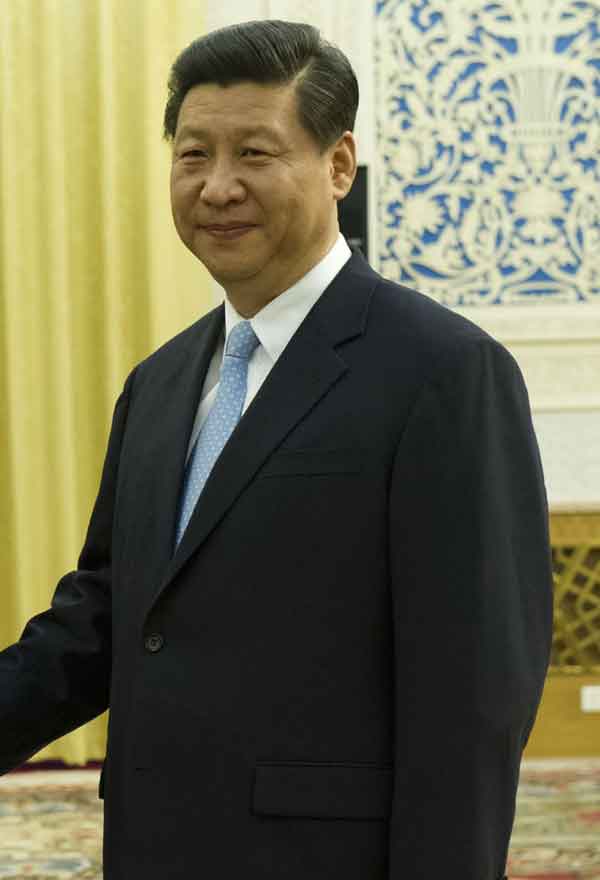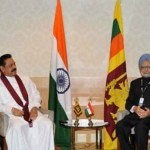IDR Blog
Having Consolidated his Power, the Buck Stops at Xi’s Desk

With the 19th National Congress of the Communist Party of China (CPC), Xi Jinping emerged as the paramount leader of People’s Republic of China (PRC). Enshrining “Xi Jinping’s Thought” and calling for an indefinite rule, Xi has added new rules to China’s political system. Often put to the stature of Mao Zedong given his ‘all-powerful cult of personality’, Xi since 2012 has taken more levers of power to that of Mao. To justify, in less than four years time, Xi has added new prefixes to his portfolio which conferred him an official title of “lingxiu 领袖”[i] (Leader) in 2018. Of which, the most notable titles are Party ‘core’; President of PRC; Chairman of the CMC; and Commander-in-Chief of PLA; among many others as noted in Figure 1 -which has earned him an all-encompassing nickname of “Chairman of Everything”.[ii]
Figure 1: Xi Jinping’s Profile
| Serial No.
|
Organisation | Designation | Tenure since |
| 1.
|
Central Committee of the CPC | General Secretary | November 2012 |
| 2.
|
Presidency of the PRC | President | March 2013 |
| 3. | Central Military Commission of the CPC | Chairman | November 2012 |
| 4. | Central Military Commission of the PRC | Chairman | March 2013 |
| 5. | Central National Security Commission | Chairman | November 2013 |
| 6. | Central Leading Group for Comprehensively Deepening Reforms | Leader | November 2013 |
| 7. | Central Leading Group for Foreign Affairs | Leader | March 2013 |
| 8. | Central Leading Group for Taiwan Affairs | Leader | November 2012 |
| 9. | Central Leading Group for Financial and Economic Work | Leader | March 2013 |
| 10. | Central Leading Group for Internet Security and Informatisation | Leader | February 2014 |
| 11. | Central Leading Group for Deepening Reforms of National Defense and the Military | Leader | March 2014 |
| 12. | Joint Battle Command of the People’s Liberation Army | Commander-in-Chief | April 2016 |
| 13. | Central Commission for Integrated Military and Civilian Development | Chairman | January 2017 |
In view of this, the road up to the 19th Party Congress had two significant implications: first, it acted as the test case to Xi Jinping’s consolidation of power and, second, it provided a trajectory to assess China’s future political transition.
What is noteworthy is that Xi’s strive towards consolidating his power is not a coincidence. Since 2012, one of the key characteristics that defined Xi’s leadership was the way he engineered the building of his ‘clout’ both politically as well as militarily. In doing so, at the foremost, Xi has adopted various approaches and tactics. First, at the foremost, Xi put forward the idea of “Chinese Dream” with the goal of “great rejuvenation” of the Chinese nation, which entails two centenary goals: build a moderately prosperous society by the centenary of the CPC in 2021 and, turn China into a modern socialist country by the centenary of PRC in 2049.
Second, Xi championed the “anti-corruption campaign” to catch the “tigers” (senior officials) and the “flies” (lower ranking cadres) of both civil and military. This decisive power play policy acted as the key enabler behind Xi’s consolidation of power so quickly and effectively. Under this decisive power play policy, over 300,000 party members have been jailed and a third of military officers purged and thousands were forced down the path of “assisted suicide”.[iii] Of which, the most noted prosecutions are that of: Bo Xilai, former party chief of Chongqing and a member of the Politburo Standing Committee ; Zhou Yongkang, former security chief and member of the China’s Politburo; and from the military of: Xu Caihou and Guo Boxiong- the two former vice-generals under China’s CMC and the latest being General Fang Fenghui- former chief of joint staff of Guangzhou Military Area Command, and General Zhang Yang, former head of CMC’s political work department- have been expelled on charges of corruption. With such a measure, Xi has succeeded to fortify his command and control as expedited by a loyal leadership core.
Third, Xi has centralised the decision-making system of the Chinese military by empowering the stature of CMC to the highest civil-military authority under his chairmanship. With this structural reform, CMC now directly commands the military services and theaters of operations instead of exercising its leadership role through four general departments (staff, political affairs, logistics, and armaments). Exemplifying Xi’s control over the People’s Liberation Army (PLA), the 2017 amendment to the CPC Constitution clarified that the “chairperson of the CMC assumes overall responsibility for the work of the commission and that the CMC is responsible for Party work and political work in the armed forces”.[iv] Furthermore, acting as the Commander-in-Chief of the PLA, Xi has strengthened both his personal power and his new administration’s authority by advocating sweeping reforms to strengthen and sophisticate PLA’s combat capabilities under “fight and win” logic as well as adopting assertive policies as witnessed in the case of South China Sea.
What does Xi’s consolidated power imply? Xi Jinping’s such expanded levers of power holds two key implications: First, a decisive departure from Deng Xiaoping’s normative framework of “collective leadership” system given Xi’s unilateral approach to power with the abolishment of the presidential term limits. This suggests the transition towards a “one-man rule” and further narrows down the scope of any form of democratic reforms in China.
Secondly, PLA’s actions are distinctively defined by the guidance of Xi Jinping and in concert to the Party leadership. That is, PLA cannot exercise any form of self-motivated actions, therefore, leaving no scope for the PLA to dismiss or overrule Xi’s command. These assessments qualify that the final decision-making authority lies with Xi Jinping.
Xi’s constant strive towards power accumulation reflects his determination to pull out all the stops to exhibit that everything is under ‘his control’. However, to say that this power comes without any strings attached will be a faulty assessment. For Xi, the biggest challenge lies in seeking his loyalists as he is faced with a threat of deception. What adds up to this is the fear of deliverance wherein, the challenge lies in failing to deliver his commitments to a strong China. That is, if Xi fails, this then will translate into dissatisfaction over Xi’s leadership, which will cost him both loss of power as well as reputation. Hence, the query remains: Will Xi be any different from Mao as all-roads in Beijing are leading to a “one-man rule”.
References
[i] ““人民领袖” — The People’s “Leader” Xi Jinping Gets A New Propaganda Title”, The Sinocism China Newsletter, 12 February 2018, at https://nb.sinocism.com/p/-the-peoples-leader-xi-jinping.
[ii]“Chairman of Everything”, The China Story, at https://www.thechinastory.org/yearbooks/yearbook-2014/introduction-under-one-heaven/chairman-of-everything/.
[iii] “What Chinese President Xi Jinping’s consolidation of power means for India and the world”, Hindustan Times, 28 October 2017, at https://www.hindustantimes.com/opinion/what-chinese-president-xi-jinping-s-consolidation-of-power-means-for-india-and-the-world/story-hvD5hJDYKxtzKqPqDSGz7I.html
[iv] Zhang Zhihao (2017), “Military pledges total loyalty to Xi”, China Daily, 06 November 2017, at http://www.chinadaily.com.cn/china/2017-11/06/content_34171130.htm.




